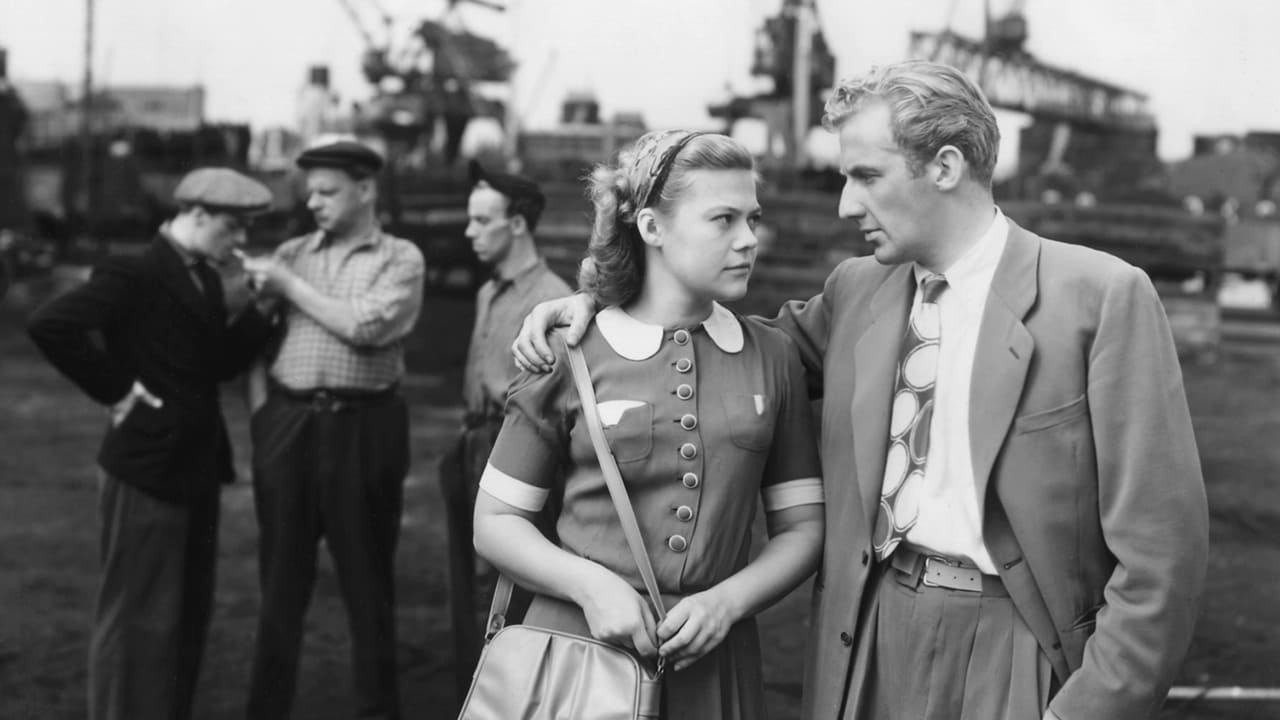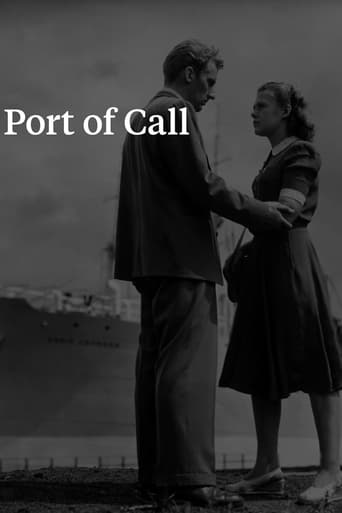



Overrated and overhyped
It's hard to see any effort in the film. There's no comedy to speak of, no real drama and, worst of all.
View MoreLet me be very fair here, this is not the best movie in my opinion. But, this movie is fun, it has purpose and is very enjoyable to watch.
View MoreExcellent and certainly provocative... If nothing else, the film is a real conversation starter.
View MoreOne can see the beginnings of some pretty wonderful cinematography in this early work by Ingmar Bergman. It is a slice of life story about two down-and-outers who have been dealt a bad hand. The young woman has a sparkle, despite growing from an abusive family situation. She is dominated by her mother. She has spent time in a reformatory because her life is intolerable and she turns to a man who kindly takes her in. Because of her age, the mother can do what she wants. The sailor is a man who has just arrived at this port of call. His first act upon coming ashore is to rescue the young woman, who has decided top end it all by jumping in the harbor. Their paths cross again and it develops into a tenuous relationship. His first act is to get her into bed, but over time he realizes that she is all he has. Bergman does a nice job of making these people real. She has all kinds of demons and he has trouble accepting her morose being. She has a right to feel the way she does and he really is an unfeeling cad. If one is willing, he can see the framing of scenes, the positions of actors, and some pretty interesting symbols. It is a claustrophobic film. Outdoor scenes are scenes of freedom, even the suicide attempt; and indoor the forces of the outside close in. See this as a foundation piece.
View MoreThis is really a film about an unhappy woman,the people around her and her journey to find happiness. The other characters are props but props devised with imagination and played quite well. She has been sent to reformatory time and again and her attempts to find sexual love frustrated at every attempt. We feel for her and sense that she is a good human being who has simply not seen a break. In flashback we see the reason for her unhappiness - an abusive, unsympathetic mother, people willing to exploit her...There is little of anything we have come to associate with the older Bergman. The camera movements are in Hollywood-style and the editing invisible. The girl's desolation is mainly private, even from the viewer, but the film is one about her and not the other characters. This is one of Bergman's central points throughout his career. I'm glad I saw this but now it's time to move on.Curtis Stotlar
View MoreBerit is a factory girl fresh out of reformatory school and fresh from an attempted suicide by drowning when she meets a sailor named Gösta at a dance club. He beds her down that night, and later, when the two become lovers, allows himself to assume that he was the first man to do so. Meanwhile, Berit is desperate to be free: free from the badgering and manipulation of the mother she is forced to live with, free of the dirty work of the factory and free of her social worker and the constant threat of returning to reformatory school. Her already unhappy life is complicated when an old friend from the school desperately needs her help.Personal freedom is a major theme of this lovely, bleak, but not pessimistic, early Ingmar Bergman movie. We yearn for Berit to find freedom from her unpleasant life, and most of all freedom from loneliness, just as we hope Gösta can free himself from jealousy and the specters of long-gone rivals for his affections.
View MorePort of Call (1948)** 1/2 (out of 4)Early Bergman film has a young woman, Berit (Nine-Christine Jonsson) throwing herself into the ocean in a suicide attempt but being pulled out by a man named Gosta (Bengt Eklund). Sometime after the two meet up at a party when they go back to her house for sex, which soon leads up to a relationship. The relationship starts off on a bad note as Berit is haunted by her past as well as secrets she doesn't want revealed. This is a very dark and bleak love story from Bergman that hits on a few familiar themes of his later films but for the most part you really can't look at this and say this is one of his better movies. There are certainly some very good touches here and there and the performances are great but I think the movie would have benefited from some editing and a better pacing. A lot of the middle parts of the film seemed to have just been repeating itself and I didn't care for the flashback scenes at all. When Berit starts telling her backstory to Gosta, I think strong dialogue would have been a lot better than actually watching the stuff play out. Another thing I didn't care too much for was the ending, which really seemed to be taped on from another film. It didn't really match up with anything that came before it and it played out too simply. For a film from 1948 this really hits on some touchy subjects including all the sex, an aborition and there's even some brief nudity. I'm sure this movie would have been very shocking when originally released but today it comes off rather tame and even the drama isn't as tight as one would expect from the director. With that said, there's still a lot to enjoy here and that includes the terrific performances with Jonsson stealing the show as the troubled youth. She's very believable in her role and her opening shot, the look of her eyes, is quite priceless and tells us all we need to know before she even says anything or we're told anything. Eklund is also very strong in his role as is Mimi Nelson as the mother. Bergman handles the material quite well even though, as I said, the pacing could have been a little better.
View More